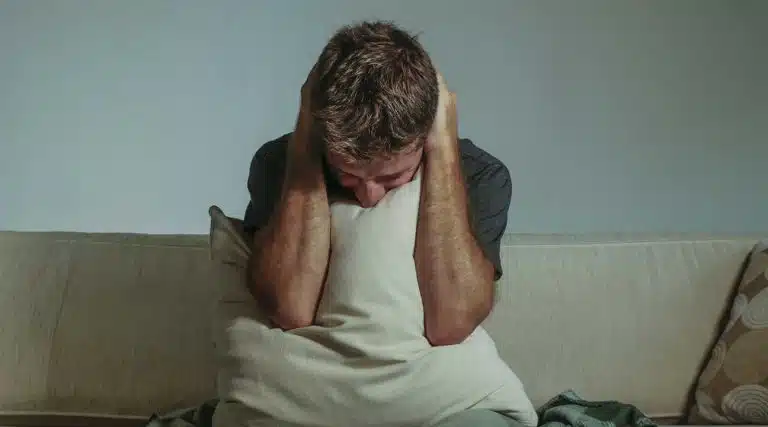The Dangers Of Detoxing From Alcohol At Home

If you struggle with alcohol addiction, quitting cold turkey can be risky to your health. Although many people try to detox at home on their own, it’s best to know the pitfalls of home detox and why seeking addiction treatment may be your safest option.
Why At-Home Alcohol Detox Is Risky
According to the National Institute on Alcohol Abuse and Alcoholism, approximately 14.4 million adults in the United States had alcohol use disorder (AUD) in 2018 alone.
Excessive alcohol can obstruct the brain’s communication pathways and make it difficult for you to function properly. Over time, continued alcohol abuse can lead to serious heart issues such as stroke, high blood pressure, or even arrhythmias.
And after a period of consistent, heavy use, quitting alcohol abruptly can lead to uncomfortable and potentially dangerous symptoms, which makes it very risky to detox at home.
Alcohol Withdrawal Syndrome
Alcohol Withdrawal Syndrome (AWS) is a series of intense symptoms that the body undergoes when withdrawing from alcohol. It can take between six and 72 hours from the time you consume your last drink to the time you begin experiencing withdrawal symptoms.
Symptoms of alcohol withdrawal may include:
- anxiety
- confusion
- headache
- irritability
- sweating
- insomnia
- high blood pressure
- nightmares
- increased heart rate
- physical tremors
- nausea & vomiting
Delirium Tremens
The life-threatening symptoms associated with AWS are known as delirium tremens (DTs). Symptoms of DTs can include:
- hallucinations
- seizures
- sensitivity to Sensory Input
- mood Swings
- bursts of energy followed by exhaustion or fatigue
- paranoia
- body tremors
- delirium
- restlessness
- changes to mental functioning
- appearing conscious without a response
Alcohol Detox Programs
The withdrawal process of alcohol from the body can be dangerous. For this reason, it’s recommended that you seek the clinical support of medical professionals for proper detoxification.
If you or a loved one decides to stop drinking at home, it’s likely that serious symptoms can occur upon detox and withdrawal.
In contrast, when you enter a treatment center for alcohol addiction, staff can first acknowledge pre-existing medical conditions in order to better monitor your progress.
With an alcohol detox program, medical professionals may use benzodiazepines as a way to stabilize your body so the detox process isn’t as painful.
Inpatient Treatment
Depending on your addiction or the amount of alcohol you or a loved one may be consuming, it is imperative that you seek medical supervision to avoid the physical symptoms of alcohol withdrawal.
Self-detox is never the answer; always strive to seek the appropriate medical care to avoid severe alcohol withdrawal symptoms.
In order to protect your well-being and avoid a medical emergency, seek the resources you need to avoid health risks and relapsing in the future.
If you or a loved one is struggling with alcohol addiction, it’s important to seek professional support and medical treatment at an inpatient substance abuse treatment program.
To learn more about our comprehensive treatment options, please contact an Ark Behavioral Health specialist today.
Written by Ark Behavioral Health Editorial Team
©2024 Ark National Holdings, LLC. | All Rights Reserved.
This page does not provide medical advice.
Harvard Health - Alcohol Withdrawal
National Institute on Alcohol Abuse & Alcoholism - Alcohol Use Disorder
Substance Abuse & Mental Health Services Administration (SAMHSA) - Alcohol Management as Harm Reduction
USA Today - How much alcohol, beer, wine is too much during the COVID pandemic?

Questions About Treatment?
Ark Behavioral Health offers 100% confidential substance abuse assessment and treatment placement tailored to your individual needs. Achieve long-term recovery.
100% confidential. We respect your privacy.
Prefer Texting?
Our friendly support team is here to chat 24/7. Opt out any time.







 Learn More
Learn More








